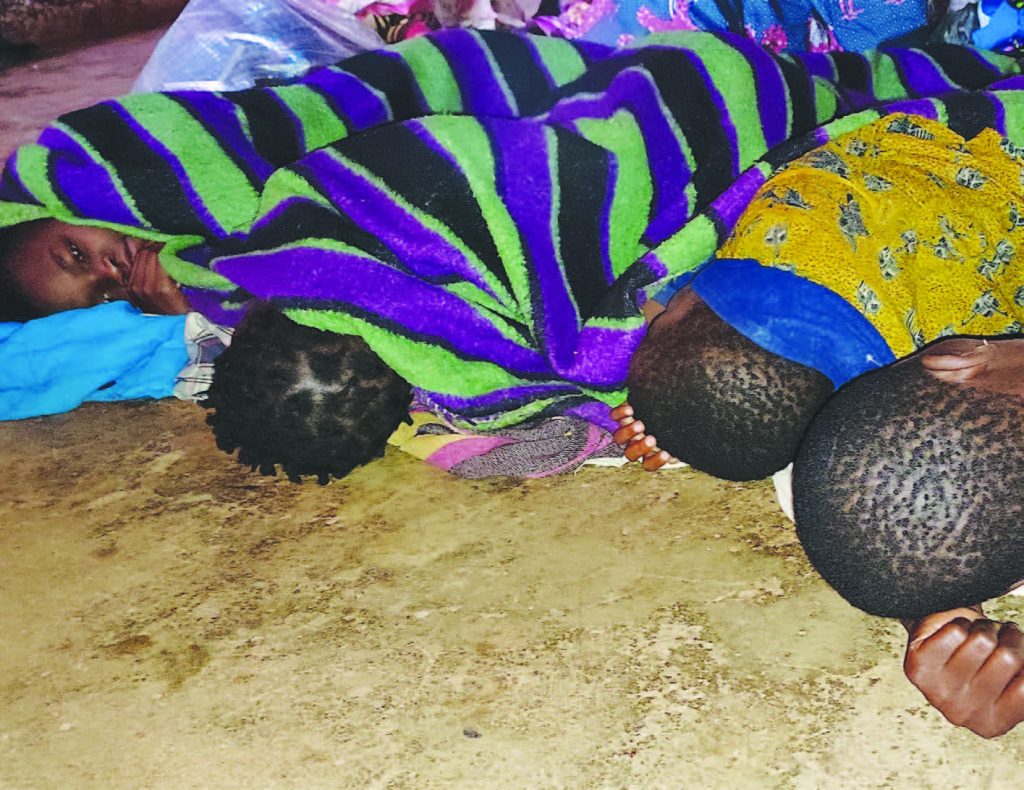A night at anevacuation camp
It is not easy interacting with people who have lost the will to live because of Cyclone Freddy as our reporter discovered on the night of April 12 2023 at Nanchidwa evacuation camp in Mulanje District.
The camp, which keeps 447 people from Mujiwa and Namviyo villages in group village Ndala, Traditional Authority Njema, is eight kilometres from Muloza Border.

The area can only be reached by motorcycles since the road was washed away.
Though this particular night was tranquil, it was hardly so for cyclone survivors in classrooms.
They sleep on a hard cold floor and barely covered as mosquitoes whine, seeking to sink their proboscis into the flesh of tired souls.
In pitch darkness, most survivors shiver in the cold as they wait for the night to quickly pass.
Meanwhile, memories of how they survived the force of nature on March 13 still linger and somehow shakes everyone.
At 10 pm, an apparent serenity is disturbed by a commotion, especially from classrooms accommodating women.
Jane Batoni explained; “We have heard that tonight floods will come to this place again; hence, our moving out.”
They cannot explain the source of their information such that almost everyone left the room.
Batoni is not at peace as she already lost her first-born son Stova Muleso, 21, and daughter-in-law Mary who was seven months pregnant.
“This is too much for me. I am left with two children; hence, I came out quickly as soon as I heard of the coming floods,” she said.
But only Jine Mulasa from Mujiwa Village did not leave the room.
“I lost all my children. I am dead already. I do not have the energy to run,” she said.
It was difficult to convince the women that the floods were not recurring.
After an hour, this journalist, accompanied by camp chairperson Mary Lefunati, visited the room accommodated by women.
It took hours to convince them to go to sleep again.
Few blankets
Each family received one blanket regardless of how many members.
Afasileni Namalezala, 47, who has four children, covers herself with a wrapper while the children use the blanket.
“Mwana wanga, awa ndi masiku otsiriza [My son, these are the end times].
“What I have seen this year, I have never heard of and I cannot imagine the problems I am passing through.
“I was stuck in the mud and when rescued, I was naked. A good Samaritan gave me this wrapper. Last week we received a blanket which I have given to my children to use,” she told the journalist.
There are no mosquito nets for survivors and chances of them contracting malaria are high.
At around 2am, a man visited the women’s class, claiming he wanted to deliver an important message to his wife and moments later, they left together only to return an hour later.
Village Head Mujiwa speculated: “These men have stayed for a month without sex. We need to understand them. It was a polite way of communicating.” We laughed off.
By 4am most of the people were awake and spoting mosquito bites.
“This is what we are facing here in camps. Tell the government that we need mosquito nets, enough blankets and mats,” said Mujiwa.
Just a kilometre away is Khulubwe Camp whose single room accommodates 90 people.
When Cyclone Freddy hit the area on March 13, survivors moved to a small Khulubwe CCAP church.
Elifa Mvito, 56, said the situation is tough as men and women sleep in the same room.
“If we want to change, we have to go out even at night. There is no privacy but we do not have options,” she said.
The camp’s chairperson Margret Kudango said people have no option but to share the room.
“And on Sundays, we need to give space to church members to pray; hence, early in the morning we move out our properties and bring them back after church service,” she said.





